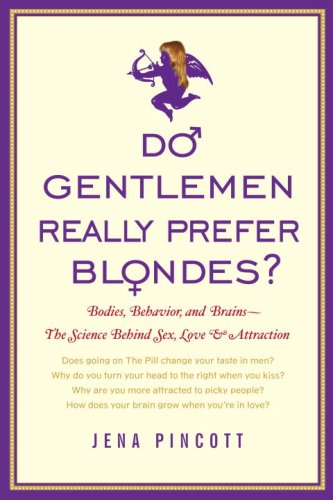 Do Gentlemen Really Pr...
Best Price: $1.50
Buy New $8.01
(as of 01:00 UTC - Details)
Do Gentlemen Really Pr...
Best Price: $1.50
Buy New $8.01
(as of 01:00 UTC - Details)
People are more likely to become lovers if their genes share little in common, according to a study that demonstrates a possible biological mechanism controlling the sexual attraction between men and women.
Heterosexual men and women with dissimilar genes are more likely to get married than people with a similar genetic heritage. The findings indicate that certain genes control some of the subconscious desires behind the choice of one partner over another, as a way of preventing inbreeding and boosting a child’s immune defences.
Researchers studied the genes of 90 married couples and found that their DNA in a key region of their chromosomes was significantly different compared with the same stretch of DNA in 152 couples chosen at random from the population and who were neither married nor having sexual relations with one another.
The genes, called the major histocompatibility complex (MHC), are part of the immune system. This is the first rsearch of its kind showing that they may play a significant role in whether or not couples are likely to get married.
If the MHC genes played no role in the choice of a mate, then the scientists would expect to find similar differences between both sets of couples – the married and the unmarried. However, the statistically significant difference suggests that the dissimilar MHC genes influenced whether men and women become attracted to one another.
"Although it is tempting to think that humans choose their partners because of their similarities, our research has shown clearly that it is differences that make for successful reproduction, and that the subconscious drive to have healthy children is important when choosing a mate," said Professor Maria da Graca Bicalho of the University of Parana in Brazil.
May 26, 2009





